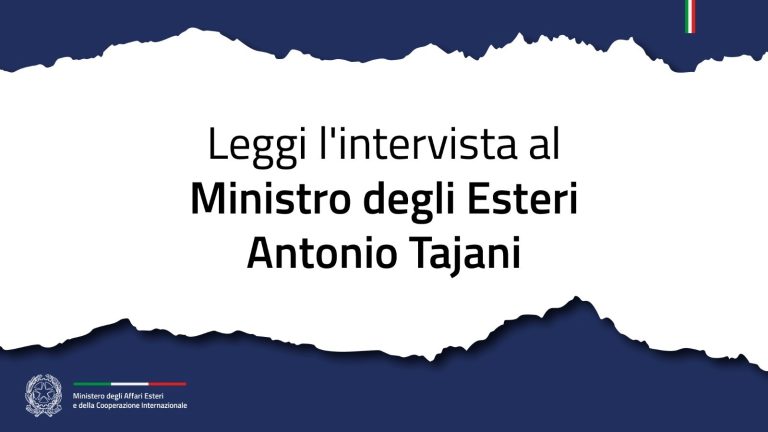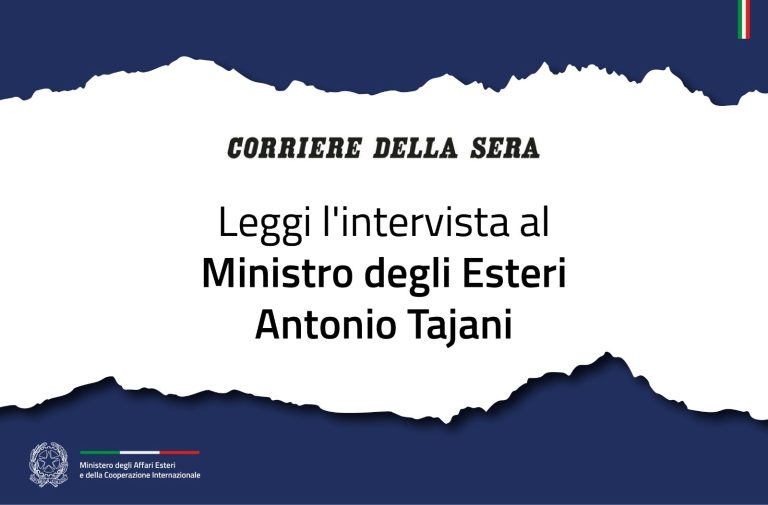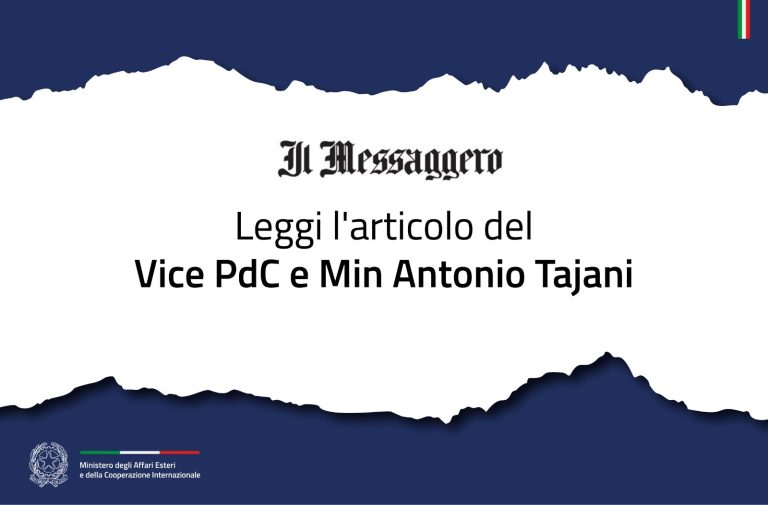Rome – Fifteen Italian observers are about to leave for Syria: our contribution to the UN mission of 300 observers envisaged by the Annan Peace Plan. “But that number is probably too low and we’ll need to go back to the Security Council”, warns Foreign Minister Giulio Terzi. “To ask for a more robust force, of up to 2-3,000 men”, he explains, “that is able to intervene under Chapter VII of the United Nations Charter. An armed mission, in other words, with the ability to protect certain areas and guarantee the security of the observers, which at present is entrusted to the Syrian Government”.
Minister Terzi, Chapter VII, which contemplates the use of force, was the foundation for the armed intervention in Libya. Are you envisaging the same scenario for Syria?
“The Libyan model cannot be repeated. But Chapter VII has been used on many other occasions. And in others still it could have prevented massacres, like the one at Srebrenica”.
Do you think Russia and China would approve an armed mission?
“At the moment, no. But they might do so if they were convinced that the situation is no longer acceptable. We believe in the Annan Peace Plan, but with a degree of concern and perplexity. Damascus is using disproportionate force that is inconceivable even in the presence of an insurgency. Anti-terrorism operations with 120mm guns”.
Isn’t it a paradox to approve sending our men and at the same time have such doubts as to the efficacy of the mission?
“A doubt, not a ‘fail mark’. The regime is continuing to act violently, it hasn’t withdrawn its troops back to the barracks, it hasn’t allowed humanitarian access throughout the country, it hasn’t granted free movement for the press. But something’s moving. There are signs that the demands of the Annan Plan are being met. We’ll need to see what impact the mission has once it’s been fully deployed. Or maybe the situation in the regime will change, prompted by Assad’s entourage”.
A coup?
“A managed departure of the president, following the Yemen model”.
Fourteen months on, and Assad is still in place. An error of evaluation by the international community as to the staying power of the regime, or of the opposition’s ability to rally the critical mass of the population?
“We never thought that things would be solved rapidly. Assad holds total control over the armed forces, and strong links with Russia and Iran that ensure he has military supplies”.
Doubts are also growing among diplomats as to the Syrian National Council (SNC), the fragmented “cartel” of opposition groups. Are we betting on the wrong horse?
“The SNC is very divided, but it’s the interlocutor identified by the international community. At the end of the week the members of the executive committee will be our guests here in Italy: our role is to help them reconcile their internal divisions”.
US Intelligence sees the hand of Al Qaeda behind the kamikaze attacks in Damascus and Aleppo. Is the prolongation of the conflict a breeding ground for extremism and terrorism?
“We fear Al Qaeda, which could take advantage of a civil war situation and establish roots in Syrian territory, just as it has done in Iraq, in Anbar province. That’s a risk for us, but a lot of what has emerged from the Arab Spring movements is risky. And the change in the conditions of the peoples who lived under Ben Ali, Mubarak or Ghaddafi certainly isn’t a cause for regret”.
Tribal clashes and violence, even in the heart of Tripoli. Is Libya imploding?
“We should wait for the elections in late June. We must hope that institutional consolidation is rapid, so that the social initiatives that the country urgently needs can take place”.
“Does a destabilised Libya rekindle the risk of an ‘immigration bomb’ for Italy?
“Not in the same way as Ghaddafi used it, knowingly and deliberately, against us. But if the borders aren’t protected then the incoming flow – and trafficking – of people will become an emergency”.
The Iranian nuclear question. The oil sanctions will come into force in late June. Signs are coming in from various sources that Khamenei, the Supreme Leader, is willing to negotiate. Is Europe inclined to relax its position to any extent?
“It’s taken 9 years to get to the point of oil sanctions. To obtain concessions – a postponement of the entry into force of these measures – Tehran would have to give the IAEA significant guarantees as to monitoring and allow very intrusive inspections to take place. But I’m sceptical on that score”.




